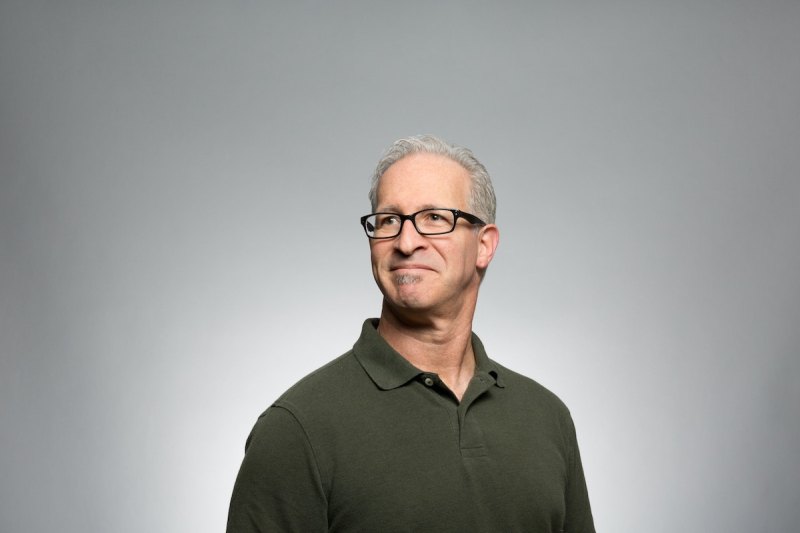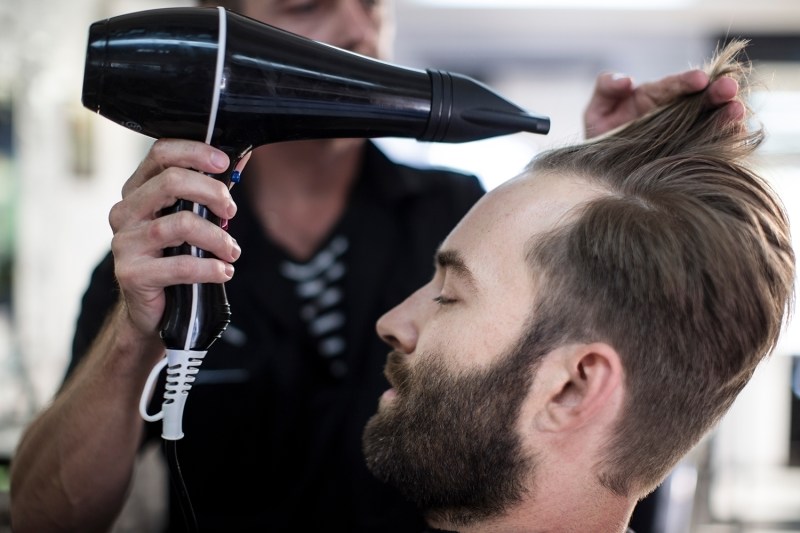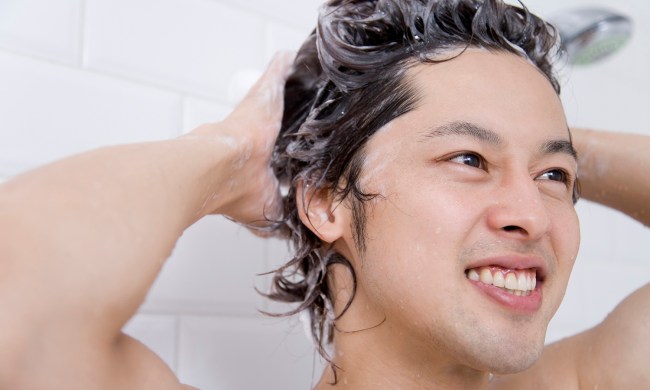While age may indeed be just a number, if you have thinning hair, that number is probably higher than you’d prefer. For most people, hair loss is inevitable as we age — my father had a pronounced widow’s peak by the time he hit his early 30s — but there are plenty of ways to counter it, and some are definitely better than others.
Start with products like Rogaine and haircuts that help hide or disguise hair loss, including the dreaded comb-over. Or you can even try to embrace baldness with your thinning hair. To make the best choice for your hairline, though, you need to know what the possible causes are, so let’s review.
What causes hair loss?

Many lifestyle factors and conditions may be to blame for your receding hairline. A dermatologist is your best bet for determining the reason for your thinning hair, especially if age isn’t the cause. However, this guide might help give you some clues, with the possible causes ranging from stress to styling woes.
Genetics
Like age, this reason for thinning hair isn’t controllable. The balding process starts early in some families, which is why your father or brother may also lament their thinning or vanished hair as well.
Scientists are still trying to pinpoint the exact reason, but hormones are likely to blame. Our bodies produce a hormone called dihydrotestosterone (DHT), and if your hair follicles are sensitive to DHT, hair loss can happen. Ultimately, though, genetics can’t be ruled out of the equation.
There are treatments for this, but experts like Dr. Andrea Suarez, a board-certified dermatologist who goes by “Dr Dray”on YouTube, points out that they may have limited effectiveness.
“When you stop [minoxidil], because it’s not a cure for hair loss, your hair returns to where it would have been if you’d never used it in the first place,” she pointed out. “Because untreated hair loss is a progressive problem.”
Stress
If you’ve ever been stressed enough to literally start pulling your hair out, then congratulations, you nailed this cause! If it helps any, the technical term to describe stress-related hair loss is telogen effluvium.
On a more practical level, it may help to know that massive life changes can cause this, too — think job loss or maybe a death in the family. Hopefully not both at once, but life hits hard sometimes, right?
When these kinds of things happen, your body becomes so focused on handling and managing the stress that hair growth becomes a secondary concern. The patterns related to timing here can be very individual, but anything you can do to reduce the stress is a good idea.
Styling with excessive heat
If you crank up the heat on your hair dryer when you do your styling, you’re making the cuticle, i.e., the outer layer of your scalp, vulnerable to damage. Styling hair frequently with high heat can also damage the inner layer, which is called the cortex, and when that happens, you may start to shed. You may also notice issues like dry scalp, frizziness, and split ends if this level of heat is the primary cause.
Folliculitis
Folliculitis is a fancy word for a skin condition triggered by inflamed hair follicles. It’s often caused by a bacterial infection, and it first appears as a series of tiny bumps near your follicles. If it’s not treated properly, the chances of hair loss grow accordingly.
Underlying conditions
As is the case with many things in life, sometimes the causes of hair loss aren’t as obvious as they seem. Some underlying conditions, like lupus and thyroid disease, can trigger thinning hair. Moreover, people on certain medications or those undergoing serious medical treatments like chemotherapy may experience hair loss. If any of this sounds familiar, you should meet with your healthcare provider to get medical work-ups done and make sure you’re routed to the right specialist.
How to ward off hair loss

While you can’t control every potential cause of hair loss, there are some possible effective actions you can take:
- Reduce stress. Start with the simple stuff: Make sure you’re getting enough sleep and take care of your mental health. You don’t have to go through stressful times alone — therapists can help. Exercise can help, even if it’s simply walking, and talking to friends may help with your overall state of mind.
- Use a heat protectant. When heat styling, use a spray that protects hair up to 450 degrees Fahrenheit.
- Limit heat styling. Give your hair a day off here and there, or find other ways to style your mane that aren’t so harsh. If in doubt, try a cool cap.
- Diet. While little research proves a direct link between diet and hair loss, leaning into nutrition is never a bad idea. Protein is necessary to produce keratin, which helps with hair growth, and the lack of protein is just one possible cause. Eating plenty of lean- or plant-based protein is another thing you can try, and of course, there’s the old saw about finishing your veggies and adding in plenty of fruit and fiber to make sure your vitamin and mineral uptake is up to snuff.
Hair loss summary

Age is one major cause of hair loss, but there are others. Genetics, stress, and heat styling may play a role. Sometimes, hair loss can be triggered by an underlying condition or ongoing medical treatment. While you can’t control age or genes, you can take some steps to slow hair loss and mitigate other possible causes.
Reducing the number of days you heat style your locks is one tweak you can make to your haircare routine. Also, consuming a nutrient-dense diet and managing stress can help. If you’re struggling with hair loss (or anxiety, for that matter), reach out for help. Your primary care doctor can refer you to the correct specialist to help you improve your physical and mental health.



